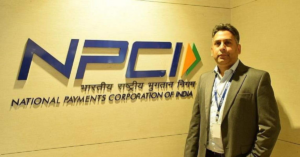| Image Credit: Credit
Survival often comes in the way of making an impact in the world. Based in London and Barcelona, Selva is an impact startup based in London and Barcelona that helped people become part of the climate change solution. Sadly, it is shutting down.
“We planted over 60,000 trees and helped hundreds of people take genuine climate action,” says Harry Hely-Hutchinson, co-founder and CEO of Selva, in a LinkedIn post. “But good intention isn’t enough to build a sustainable company.”
Has the Dutch workforce mastered all digital skills? Find out
Selva began as a startup that wanted to make climate action not restricted to just scientists and governments. It is a known fact that big corporations and governments are offsetting their carbon footprint by planting trees. Selva helps normal people offset their personal carbon footprint. However, that impactful mission and even support from people was not enough for Selva to survive the climate change.
Selva wanted to help people decarbonise
Started in January, 2021, by Harry Hely-Hutchinson, Camila Carelli, and Filadelfo Braz, Selva wanted common people to calculate their own carbon footprint and make it easier for them to offset their footprint.
The biggest achievement of Selva should be how easy it made for anyone to offset their carbon footprint in just four steps. The first step is to answer a few simple questions about your lifestyle that allows Selva to accurately estimate your personal CO2 footprint in less than two minutes.
Selva looks at your country, short or long flights that you take each year, driving habits, and even diet. Once your carbon footprint is calculated, the startup makes it easier for you to offset that footprint by planting trees on your behalf. Starting at £3 a month, Selva created an impact for climate conscious people.
If you contributed £3 to offset your carbon footprint, Selva took 15 per cent of that contribution to maintain its servers, processing fees, and marketing. The remaining 85 per cent of your contribution goes straight to Selva’s forestry partners.
As part of its reforestation effort, Selva ran projects in Madagascar, Kenya, Uganda, Senegal, Tanzania, and India. It chose partners for its forestry efforts called Madagascan mangroves, community farmer forests, and forest garden. Those contributing to Selva to offset their carbon footprint also got the option to select the project they want to support.
After 18 months, Selva is shutting down its efforts to help people offset their carbon footprint. In his LinkedIn post, Hely-Hutchinson further adds that, “time is precious and there are so many exciting challenges to be working on that it’s important to know when to cut your losses and try something else.”
He also mentions that Selva could have figured out eventually on how to make its mission work, but he and his co-founders seem to be prioritising building a more sustainable startup instead.
We have reached out to Hely-Hutchinson to understand the reason behind failure and what he plans to do next.
Building sustainability or impact startups is not easy
Last year, a study published in the journal Organization Science revealed that greentech or impact startups succeed in communities with a mix of strong market orientation and pro-environment culture.
The study following green building product suppliers who entered and exited the market between 1999 and 2007 found that about 28 per cent of the firms had ceased operating or exited the green building products market.
“Thus the broader implication is that ‘green startups’ aren’t necessarily better off setting up shop in ‘eco-conscious places,’” says study team member Siddharth Vedula, associate professor of entrepreneurship at the Technical University of Munich in Germany.
This is in stark contrast to climate change being the top priority for corporations as well as political parties. There is also investor cash flowing into companies in the cleantech and impact space. With inflation rising, supply chain fractured, gas prices soaring around the world, the need for an effective climate action has never been more dire than now.
However, it seems sustainability or impact startups have to look at their own survival or growth over decarbonisation or climate change mitigation. Climatetech may have become a magnet for investors, but the success of the sector depends on the wider business community responding to climate risk.
While big companies like Apple, Microsoft, and Google are able to lower their carbon footprint and make progress on their goal to become net carbon neutral, Selva wanted to bring those elements to common people.
However, its failure to survive shows that startups providing technology or data or means to offset carbon may not be enough. Selva took a lower commission for helping people offset their carbon footprint than some others in this space. It is, however, not clear whether the startup could have survived by taking a higher commission.
Catch our interview with Paul Down, Head of Sales at Intigriti.










